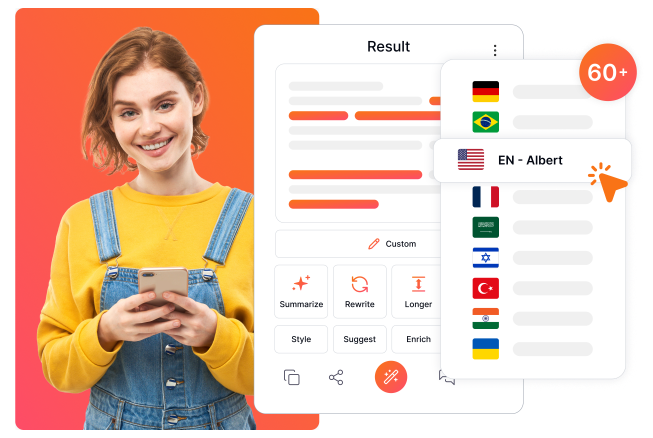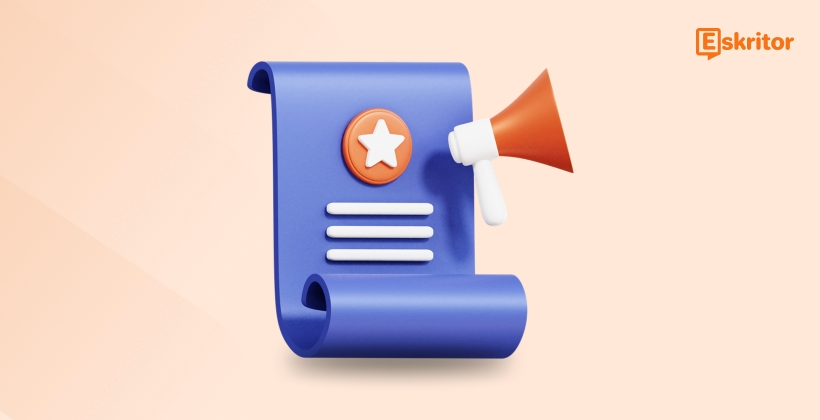Mastering Content with AI Editing Tools
Mastering Content with AI Editing Tools
Blog Article
How AI Writers Are Transforming Content Creation
Artificial intelligence (AI) writing engineering has developed quickly over the past decade, reshaping the way in which we produce and interact with written content. From syntax modification resources to AI-generated books, the number of choices look limitless. But where just is this technology going? Let's discover the innovations, challenges, and possible future of AI writer.

How AI Writing Technology Operates Today
At their key, AI writing engineering relies on Organic Language Control (NLP) and machine learning. These systems permit designs to know, generate, and improve human language. Tools available nowadays excel at projects like:
1. Content Generation
AI has achieved a spot where it can make total website threads, social networking sayings, and even information articles. Some versions are designed for mimicking human publishing variations therefore effectively that distinguishing between AI- and human-written material is now increasingly difficult.
2. Grammar and Style Suggestion
AI-powered publishing personnel don't just check for syntax and spelling problems; they also give suggestions to improve tone, quality, and sentence structure, making complicated writing available to a broad audience.
3. Sentiment Examination
AI can assess the psychological tone of a bit, permitting businesses to assess how their communications will resonate with readers. That is specially useful in advertising and client interaction.
The Recent Styles in AI Publishing Technology
Several trends are surrounding the next phase of AI-powered writing tools:
• Personalization
AI publishing technology is increasingly effective at tailoring material to specific preferences. Models may adjust to a user's writing style, ensuring the production thinks authentic.
• Multilingual Capabilities
Several AI instruments are growing their world wide achieve by offering improved interpretation characteristics and help for numerous languages.
• Improved Research Functions
AI instruments today possess the capacity to analyze large levels of data and provide fact-checked, well-researched writing in moments, simplifying the procedure for experts in industries like law, fund, and journalism.
What the Potential Holds for AI Writing Engineering
1. Increased Imagination
While current AI is proficient at generating material, its creativity is still limited to styles within its education data. Future AI isn't only estimated to aid but to produce unique, insightful performs that concern human imagination.
2. Easy Collaboration
Envision an AI that works along with you in real-time, performing your phrases, completing stay edits, and actually brainstorming ideas. AI publishing resources may soon become co-authors, permitting imagination to flow uninterrupted.
3. Honest and Accessible Style
With growing concern about plagiarism, misinformation, and prejudice, developers are working toward more translucent AI training processes and moral implementation. Future tools will probably present more detailed details and measures to ensure accountability.
Issues and Considerations
The evolution of AI publishing engineering isn't without hurdles, including:
• Ethical Issues

Who owns content produced by AI? How can we ensure AI-generated material isn't distributing misinformation? These debates stay unresolved.
• Human-AI Balance
Can AI complement individual imagination or totally change particular jobs? Several writers and musicians concern yourself with their relevance in an AI-driven world.
• Availability Split
Not absolutely all companies or regions have identical access to cutting-edge AI resources, raising issues in regards to the affect with this technology on global inequality.
Changing the Way We Create
AI publishing technology is still in its infancy compared to their potential. Whether you are a student crafting documents, a material marketer targeting particular audiences, or a author seeking motivation, AI methods will continue steadily to revolutionize the publishing process. Another decade promises breakthroughs that mixture individual ingenuity with machine intelligence, creating a future where publishing is more effective, accessible, and impactful than actually before.
Report this page